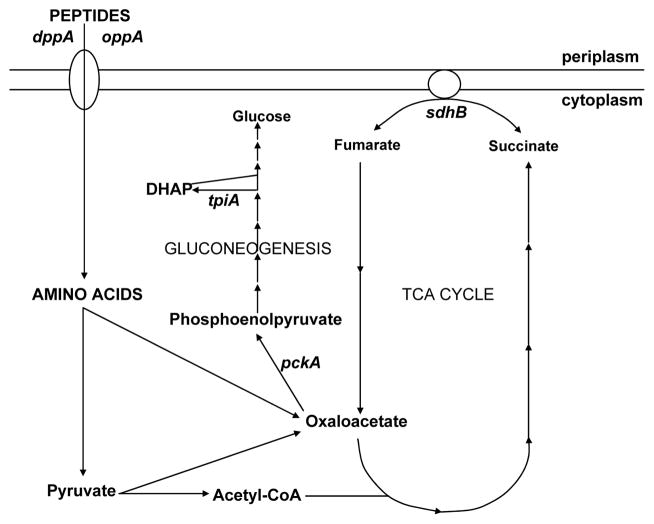Figure 2. UPEC acquires amino acids and requires gluconeogenesis and the TCA cycle for fitness in vivo.
Peptide substrate-binding protein genes dppA and oppA are required to import di- and oligopeptides into the cytoplasm from the periplasm. Short peptides are degraded into amino acids in the cytoplasm and converted into pyruvate and oxaloacetate. Pyruvate is converted into acetyl-CoA and enters the TCA cycle to replenish intermediates and generate oxaloacetate. Oxaloacetate is converted to phosphoenolpyruvate by the pckA gene product during gluconeogenesis. Mutations in the indicated genes dppA, oppA, pckA, sdhB, and tpiA demonstrated fitness defects in vivo. (From, Alteri, C., S. Smith, and Harry L.T. Mobley. 2009. Fitness of Escherichia coli during Urinary Tract Infection Requires Gluconeogenesis and the TCA Cycle PLoS Pathogens. May 5:e1000448)

